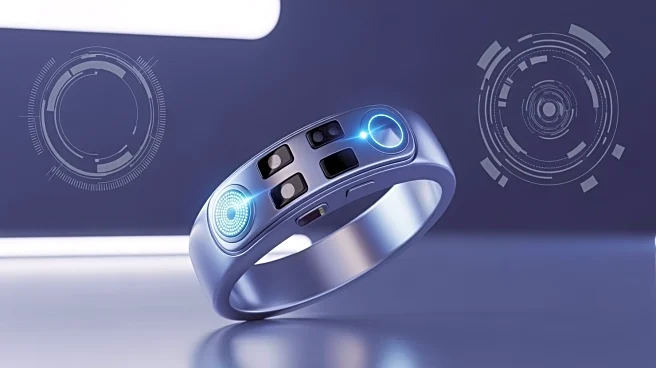What's Happening?
Ōura, a company known for its smart rings that track health metrics such as temperature, heart rate, and sleep, has successfully raised over $900 million in a funding round led by Fidelity Management & Research Company. This investment values the company at approximately
$11 billion. The funds are earmarked for expanding global distribution, advancing AI and product innovation, and developing new health features. Despite its success, Ōura has not yet pursued FDA approval for its health features, unlike competitors such as Apple, Samsung, and Fitbit. The company has sold over 5.5 million devices since its inception in 2015 and reported revenue exceeding $500 million last year, with expectations to surpass $1 billion in 2025.
Why It's Important?
The substantial investment in Ōura highlights the growing interest and potential in wearable health technology. As the lines between wellness and medical devices continue to blur, Ōura's expansion could significantly impact the market, offering consumers more advanced health tracking options. The company's partnership with Dexcom, which includes integration with glucose monitors, further emphasizes the potential for wearables to play a role in medical diagnostics. This development could lead to increased competition among tech giants and drive innovation in the wearable health sector, potentially benefiting consumers with more comprehensive health monitoring solutions.
What's Next?
Ōura plans to use the new funding to enhance its product offerings and expand its market reach. The company is expected to continue its pursuit of FDA approval for its diagnostic capabilities, which could open new avenues for its smart rings in the healthcare industry. As Ōura aims to surpass $1 billion in revenue by 2025, stakeholders will be watching closely to see how the company navigates regulatory challenges and leverages its partnerships to integrate more medical features into its devices.
Beyond the Headlines
The investment in Ōura underscores a broader trend towards integrating technology with healthcare, raising questions about privacy and data security. As wearable devices become more sophisticated, ensuring the protection of sensitive health data will be crucial. Additionally, the potential for these devices to provide real-time health insights could transform personal healthcare management, leading to more proactive and preventive health measures.














